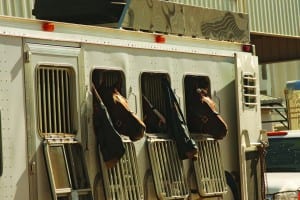Beginning July 1, 2011, all horses entering the grounds for any AQHA world championship show – in Oklahoma City, Amarillo or Houston – will be required to present a certificate of a negative blood test for equine piroplasmosis. The tests must have been completed within the previous six months.
Equine piroplasmosis is a disease of horses, donkeys, mules and zebras that is caused by two parasitic organisms, Theileria equiand Babesia caballi. Although, equine piroplasmosis is primarily transmitted to horses by ticks, this bloodborne disease has been spread mechanically from animal to animal by contaminated needles.
Currently, racetracks in 11 states have testing requirements for equine piroplasmosis and that number will increase. With the potential of an infected racehorse retiring to the show pen, the show industry is vulnerable.
“As the industry leader, AQHA needs to be vigilant and establish testing requirements to ensure any case of equine piroplasmosis can’t be traced back to an AQHA event,” said Tom Persechino, AQHA executive director of competition and breed integrity. “We’re encouraging all exhibitors to contact their veterinarians to schedule these tests. If the tests are completed around the second week of July, that horse will be eligible to show at the youth, select and open/amateur world without requiring another test.”
AQHA believes that requiring a negative test at its world shows is prudent and responsible. Currently, horses should be tested for both organisms.
“These are inexpensive tests that we don’t believe will burden our members,” Persechino said.
AQHA is recommending the following rule: AQHA World Show Recommendations for EP Testing: Effective July 1, 2011, no horse shall be allowed entry onto a World Show venue without verification that required testing for equine piroplasmosis has been completed. All horses seeking entry onto an AQHA World Show venue must be accompanied with a certificate demonstrating the horse(s) has been tested for piroplasmosis by a C-ELISA assay for bothTheileria equi andBabesia caballi and reported to be negative. The testing shall be performed and the results reported by a laboratory certified and approved by the USDA to conduct the testing and shall be completed on a blood sample collected from the horse during the six month period preceding the animal’s entry onto the grounds.
Here is a list of approved labs for these tests. Test samples on horses arriving from an international country must be sent to the NVSL laboratory in Ames, Iowa.








